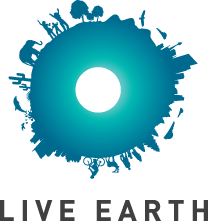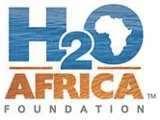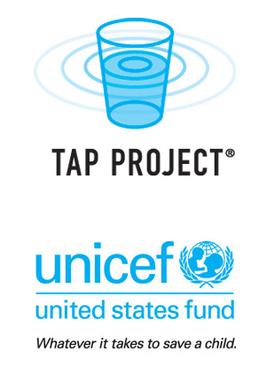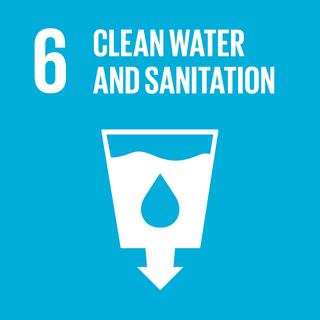
The Bill & Melinda Gates Foundation (BMGF), a merging of the William H. Gates Foundation and the Gates Learning Foundation, is an American private foundation founded by Bill Gates and Melinda French Gates. Based in Seattle, Washington, it was launched in 2000 and is reported as of 2020 to be the second largest charitable foundation in the world, holding $69 billion in assets. On his 43rd birthday, Bill Gates gave the foundation $1 billion. The primary stated goals of the foundation are to enhance healthcare and reduce extreme poverty across the world, and to expand educational opportunities and access to information technology in the U.S. Key individuals of the foundation include Bill Gates, Melinda French Gates, Warren Buffett, chief executive officer Mark Suzman, and Michael Larson.

Sanitation refers to public health conditions related to clean drinking water and treatment and disposal of human excreta and sewage. Preventing human contact with feces is part of sanitation, as is hand washing with soap. Sanitation systems aim to protect human health by providing a clean environment that will stop the transmission of disease, especially through the fecal–oral route. For example, diarrhea, a main cause of malnutrition and stunted growth in children, can be reduced through adequate sanitation. There are many other diseases which are easily transmitted in communities that have low levels of sanitation, such as ascariasis, cholera, hepatitis, polio, schistosomiasis, and trachoma, to name just a few.

WaterAid is an international non-governmental organization, focused on water, sanitation and hygiene. It was set up in 1981 as a response to the UN International Drinking Water decade (1981–1990). As of 2018, it was operating in 34 countries.

The World Toilet Organization (WTO) is a global non-profit organization whose goal is to improve toilet and sanitation conditions worldwide. It was founded in 2001 with 15 members and has now grown to 151 member organizations in 53 countries. The WTO is also the organizer of the World Toilet Summit, the Urgent Run and initiated the United Nations World Toilet Day.

World Toilet Day (WTD) is an official United Nations international observance day on 19 November to inspire action to tackle the global sanitation crisis. Worldwide, 4.2 billion people live without "safely managed sanitation" and around 673 million people practice open defecation. Sustainable Development Goal 6 aims to "Ensure availability and sustainable management of water and sanitation for all". In particular, target 6.2 is to "End open defecation and provide access to sanitation and hygiene". When the Sustainable Development Goals Report 2020 was published, United Nations Secretary-General António Guterres said, "Today, Sustainable Development Goal 6 is badly off track" and it "is hindering progress on the 2030 Agenda, the realization of human rights and the achievement of peace and security around the world".

World Water Day is an annual United Nations (UN) observance day held on 22 March that highlights the importance of fresh water. The day is used to advocate for the sustainable management of freshwater resources. The theme of each year focuses on topics relevant to clean water, sanitation and hygiene (WASH), which is in line with the targets of Sustainable Development Goal 6. The UN World Water Development Report (WWDR) is released each year around World Water Day.

Catholic Relief Services (CRS) is the international humanitarian agency of the Catholic community in the United States. Founded in 1943 by the Bishops of the United States, the agency provides assistance to 130 million people in more than 110 countries and territories in Africa, Asia, Latin America, the Middle East and Eastern Europe.
Blood:Water Mission is an international nonprofit that partners with African community-driven organizations to end health disparities caused by the HIV/AIDS and water crises. It is based in Nashville, Tennessee, US, and is led by Jake Smith.

Live Earth was an event developed to increase environmental awareness through entertainment.
East Meets West, known in the United States as Thrive Networks, is an international non-governmental organization that creates evidence-based programs and technologies in health, water, sanitation, and education for people in Asia and Africa. It was founded in 1988 by author and humanitarian Le Ly Hayslip and is based in Oakland, California, USA.

The H2O Africa Foundation was an NGO founded by Matt Damon to raise awareness about clean water initiatives in Africa. It was part of the Running the Sahara expedition and documentary project undertaken by Damon, James Moll, LivePlanet, and the Independent Producers Alliance. In July 2009, the H2O Africa Foundation merged with WaterPartners to form Water.org, an organization co-founded by Matt Damon and Gary White of WaterPartners.

Living Water International (LWI) is a faith-based non-profit organization that helps communities in developing countries to create sustainable water, sanitation and hygiene (WASH) programs in response to the global water crisis. It is based in Houston, Texas, United States. It was established in 1990 and currently operates in 17 countries. As of 2013, the organization had completed more than 14,100 water projects which included drilling new water wells, harvesting water, and the rehabilitation of non-working wells. Living Water was a founding member of the Millennium Water Alliance, and is a member of the 58 Alliance, a coalition of Christian organizations united to help eliminate extreme poverty.

Lifewater International is a non-profit Christian water development organization serving the world's rural poor through integrated water, sanitation, and hygiene programs. In 40 years, Lifewater has served 2.5 million people in 40 countries.

WaterPartners International was an American nonprofit developmental aid organization tasked with the specific purpose of providing safe drinking water and sanitation to people in developing countries. Founded in 1990, it has since provided safe drinking water and sanitation to more than 200 communities in eight countries – Bangladesh, El Salvador, Ethiopia, Honduras, Guatemala, India, Kenya, and the Philippines. The organization's co-founder and current executive director Gary White is also a founding board member of the Global Water Challenge and Water Advocates.

The water supply and sanitation sector in Ghana is a sector that is in charge of the supply of healthy water and also improves the sanitation of water bodies in the country.

The UNICEF Tap Project was a nationwide campaign that provides children in impoverished nations with access to safe, clean water. The campaign culminated during World Water Week, celebrating the United Nations' World Water Day, March 22.

WASH is an acronym that stands for "water, sanitation and hygiene". It is used widely by non-governmental organizations and aid agencies in developing countries. The purposes of providing access to WASH services include achieving public health gains, improving human dignity in the case of sanitation, implementing the human right to water and sanitation, reducing the burden of collecting drinking water for women, reducing risks of violence against women, improving education and health outcomes at schools and health facilities, and reducing water pollution. Access to WASH services is also an important component of water security. Universal, affordable and sustainable access to WASH is a key issue within international development and is the focus of the first two targets of Sustainable Development Goal 6. Targets 6.1 and 6.2 aim at equitable and accessible water and sanitation for all. In 2017, it was estimated that 2.3 billion people live without basic sanitation facilities and 844 million people live without access to safe and clean drinking water.
The Water Supply and Sanitation Collaborative Council (WSSCC) was a United Nations-hosted organization contributing to Sustainable Development Goal 6, Target 6.2 on sanitation and hygiene. It was established in 1990 and closed at the end of 2020. WSSCC advocated for improved sanitation and hygiene, with a focus on the needs of women, girls and people in vulnerable situations.

Sustainable Development Goal 6 is about "clean water and sanitation for all". It is one of the 17 Sustainable Development Goals established by the United Nations General Assembly in 2015. According to the United Nations, the goal is to: "Ensure availability and sustainable management of water and sanitation for all." The goal has eight targets to be achieved by 2030. Progress toward the targets will be measured by using eleven indicators.
















